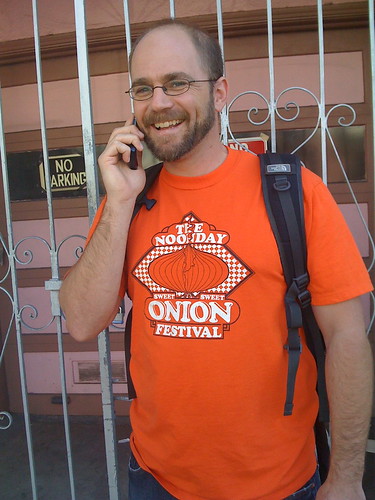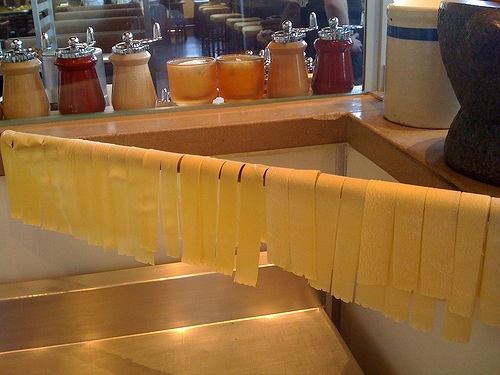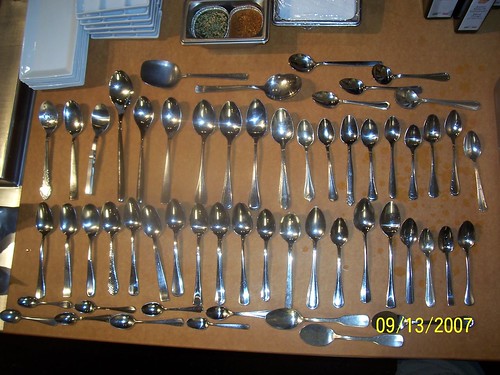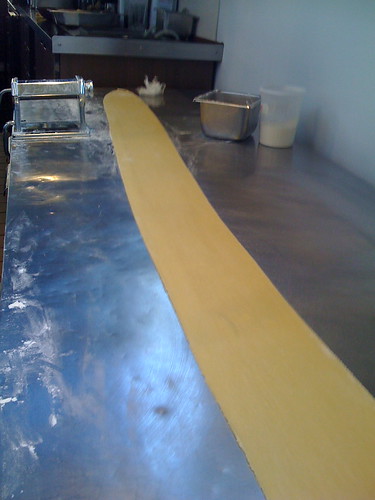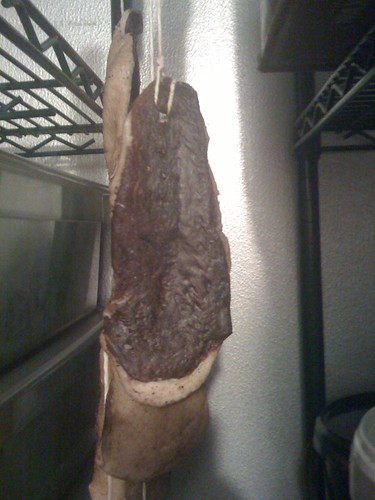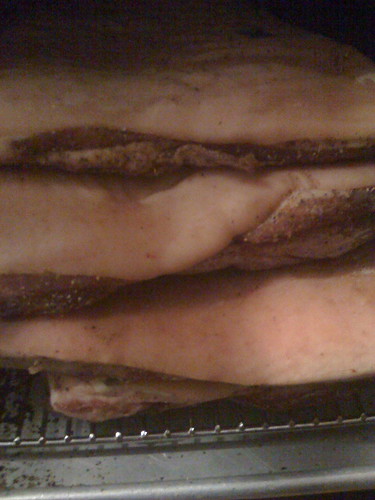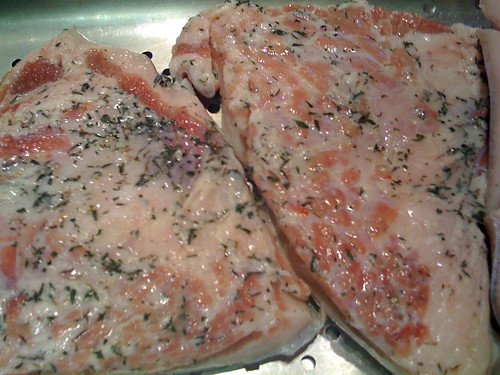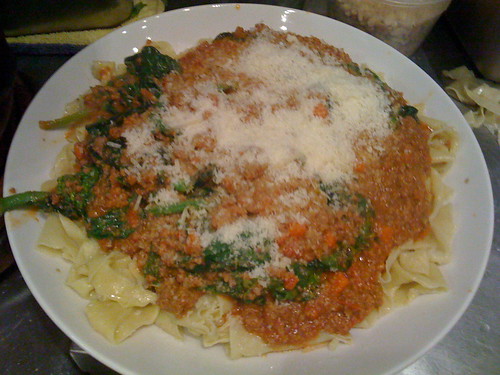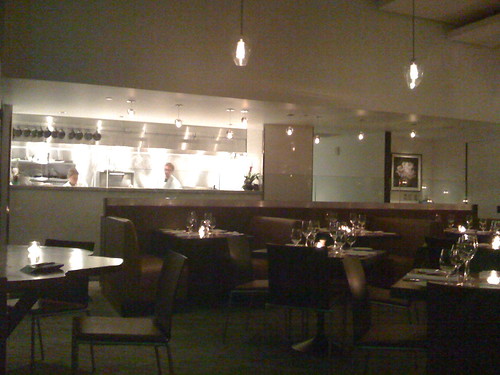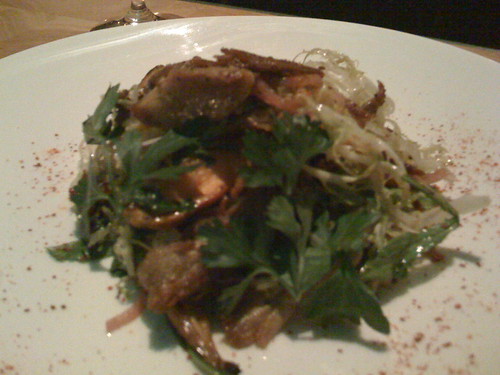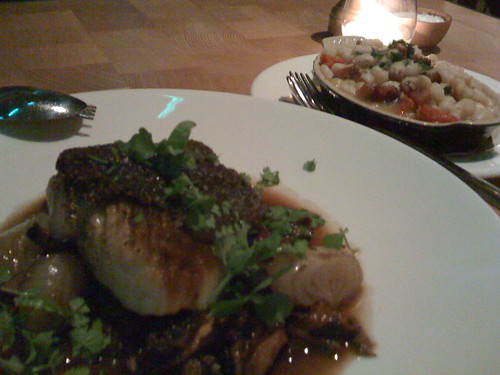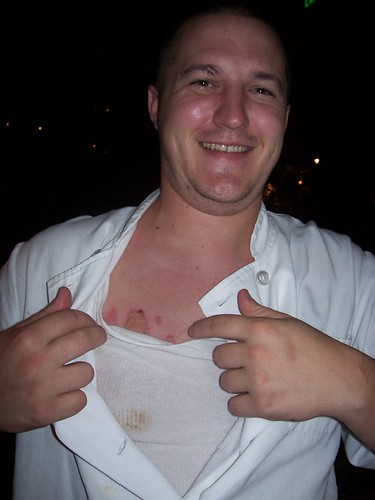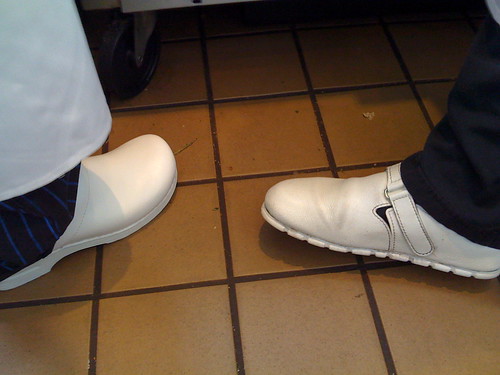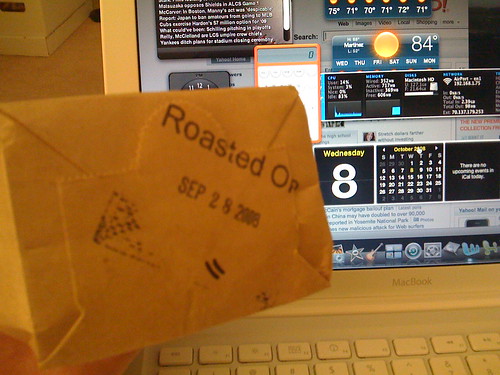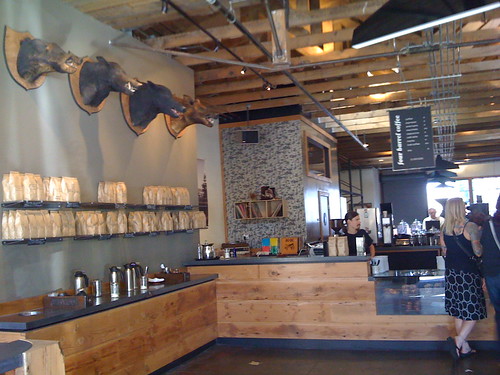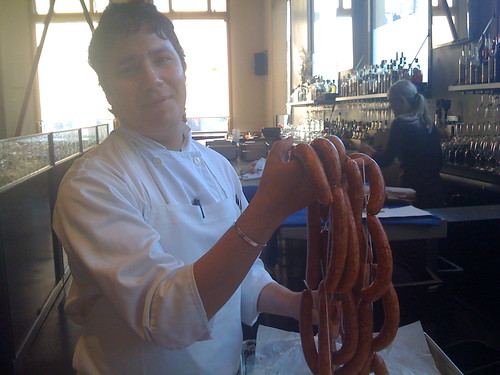Oh my, we have so much to talk about. First things first:
Eating out in SF is fun. It's such a small city, and an even smaller restaurant industry, so when you go out you'll always run into people you know, offering their favorite dishes and a smile. Before I moved here, it seemed so daunting; Was I good enough to hack it in SF? Were the cooks there different? Now that i'm here I feel like im part of something--this familial community. Eating out and/or cooking for others brings on a warmth that I cant describe. Sure, ive had bad meals, but they were nothing that a good meal at Delfina or Magnolia couldn't cure. So when Corey relayed his story about eating in Lafayette, I had to laugh:
--he's eating in a new, hip spot, and is enjoying his food. he thought the fries were really well done, so he asks the server how they do them, what kind of potato, etc. the server doesn't know, so she asks the kitchen. the answer that comes back is: "Look on the Bouchon page on Thomas Keller's website. That's how we do them." Well what a stupid fucking answer. This is what I don't understand:
Seeing chefs from so many great restaurants (there was a sixteen star table the other night--one 4 star chef and four 3 star chefs), coming together and sharing--that's really what this job is all about, isn't it?
notes:

where this blog is written.

the end of service.
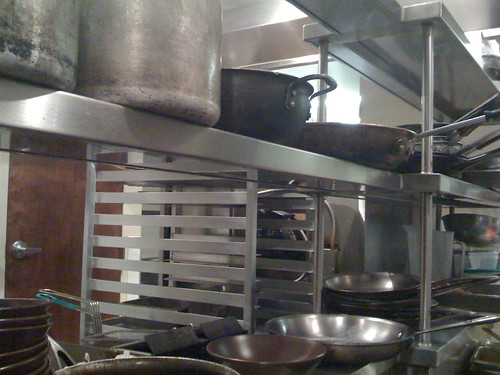
the middle of the line, mid service.
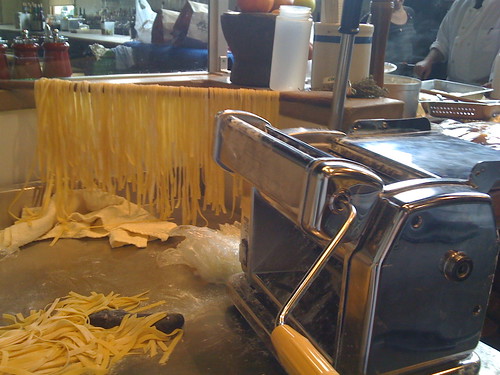
pasta party.
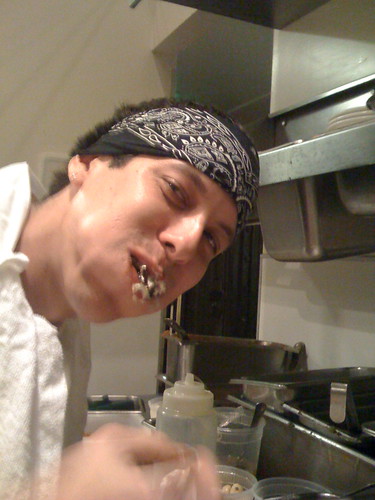
I bet Ponder an Asahi that he couldn't eat this whole dessert in one bite. He did.
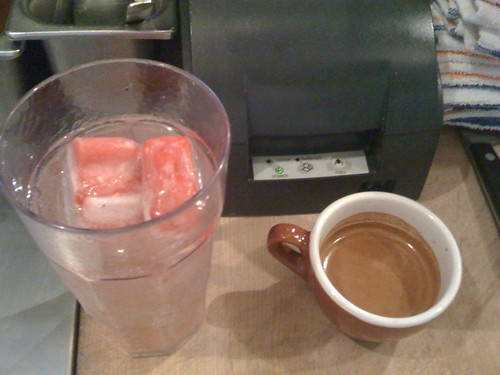
Start of service cocktail: Blue bottle espresso and a popsicle in sparkling water.
- Nopa needs a cook. Someone intelligent, hard working, and passionate about food. An interest in organics and sustainability are a plus. You can email me, or drop by Nopa (560 Divisadero @ Hayes) to have a chat and a stage.
- Anthony Myint of Bar Tartine, and recently the Mission Street Food truck contacted me and is planning to sublet a kitchen and bring in cooks to showcase their food--"kind of an attempt to create an indie chef movement" to put it in his words. It sounds very, very interesting--the kind of thing that cooks always talk about doing but never actually see through. So there it is--two exciting opportunities to be a part of San Francisco's unique dining scene.
Eating out in SF is fun. It's such a small city, and an even smaller restaurant industry, so when you go out you'll always run into people you know, offering their favorite dishes and a smile. Before I moved here, it seemed so daunting; Was I good enough to hack it in SF? Were the cooks there different? Now that i'm here I feel like im part of something--this familial community. Eating out and/or cooking for others brings on a warmth that I cant describe. Sure, ive had bad meals, but they were nothing that a good meal at Delfina or Magnolia couldn't cure. So when Corey relayed his story about eating in Lafayette, I had to laugh:
--he's eating in a new, hip spot, and is enjoying his food. he thought the fries were really well done, so he asks the server how they do them, what kind of potato, etc. the server doesn't know, so she asks the kitchen. the answer that comes back is: "Look on the Bouchon page on Thomas Keller's website. That's how we do them." Well what a stupid fucking answer. This is what I don't understand:
- Why wouldnt the server know something as rudimentary as how the fries are made?
- Why couldn't the chef just give a straight answer?
- Why did the chef feel the need to reference Thomas Keller?
- Did the chef know that Bouchon uses frozen fries?
Seeing chefs from so many great restaurants (there was a sixteen star table the other night--one 4 star chef and four 3 star chefs), coming together and sharing--that's really what this job is all about, isn't it?
How to save your kitchen money in a hard economy.
- Use everything. Fennel tops. Celery leaves. Pork trim. Fish bones. Keep a spatula close, and use it to scrape down everything.
- Revisit your recipes. Where are you not being efficient? Are there ingredients in there that you could be making in house? Cheeses, spice blends, curry paste, breads, charcuterie, pastas--you can make them better than what you're buying...and for cheaper
- Cook seasonally for fucks sake.
- Get to know your purveyors. Learn who to trust, and who not to. Don't be afraid to ask for a cheaper price.
- Change your menu when you need to, not just when you want to. If something isn't working, change it. Move your ingredients around so as to not to have certain items that really sell, and other that are just there.
- Dont be afraid of the oily fish. $20 a pound snapper vs $1.95 a pound mackeral. You figure it out.
- Limit your menu. Any menu over 25 items is really tipping the scales. One fish entree, one steak, one pork/duck/chicken item. Offer a veggie entree. Don't get carried away with foie gras and caviar.
- Use everyones ideas. A cook on a station knows exactly how much mise en place they need for a night--so ask them how much prep they think they'll need for a service. Analyze your prep list constantly.
- Get creative with family meal. The true test of a cook is taking all those leftovers and making something that will satiate twenty cranky servers.
notes:
- making fun of ann might cause her to dunk your hand in the deep fryer
- sometimes sitting around all day, drinking beer and playing rock band is ok.
- this blog turned 1 year old in September. it's gotten thousands and thousands of visitors, and the emails and comments i've recieved have been really nice. i plan to keep updating as much as my schedule allows me to, and to keep it ad free (except for my adsense experiment all the way at the bottom--net profits to date? 14 cents.) in the future im hoping to offer a drm free linecook related book or something, but in the meantime, thank you for reading and commenting.
- quote of the week, paraphrased: "No matter how much you might hate that guy next to you on the line--i mean really hate, if you were at a bar and someone fucked with them, you would kill that person." -Chef
- Nopa's press this week: 7x7, Food And Wine, San Francisco Magazine, and Check Please Bay Area (link lands you at the start of the Nopa segment.) You'll get to see Chef, Al, Corey, Paul, Ann, and even me in action.
- other quotes this week: question: "You remember the sluttiest girl you ever boned down with?" answer: "Yeah dude, I married her" -Corey Quote #2: "I'd put my pen in her inkwell." -Corey
- next week: my old blog revisited, cooks that shut down under pressure, and the worst chef I ever worked with.

where this blog is written.

the end of service.

the middle of the line, mid service.

pasta party.

I bet Ponder an Asahi that he couldn't eat this whole dessert in one bite. He did.

Start of service cocktail: Blue bottle espresso and a popsicle in sparkling water.
